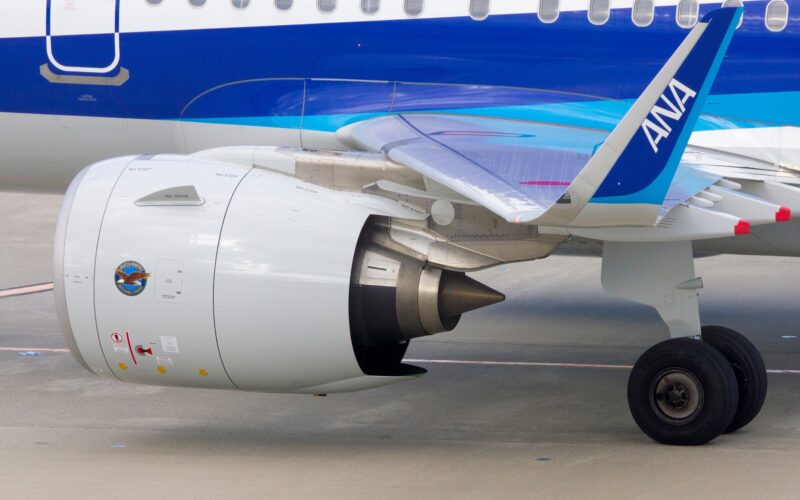Pratt & Whitney’s PW1000G Engine Woes Lead to Aircraft Storage and Wet Leasing by Airlines

Over the past months, major airlines like airBaltic, KLM, and India’s Go First have been facing significant challenges with their fleets due to availability issues related to the Pratt & Whitney PW1000G engine, also known as the Geared Turbofan (GTF). While the engine family has shown good performance according to some executives, operational reliability measured by time-on-wing (TOW) and turnaround times (TAT) at Maintenance, Repair, and Overhaul (MRO) organizations have fallen short, forcing carriers to find solutions to fulfill their passenger commitments.
Martin Gauss, the chairman and CEO of airBaltic, expressed concerns during the International Air Transport Association’s (IATA) Annual General Meeting in Istanbul, Turkey, stating that P&W is struggling to meet MRO capacity demands, leading to increasing delays over the past three months. Gauss added that airBaltic, an all-Airbus A220 carrier, is interested in ordering more aircraft but first wants to see the engine issues resolved.
The GTF engine family powers several aircraft families, including Airbus A220 (as an exclusive engine provider), Airbus A320neo (along with CFM International LEAP engines), and Embraer E2 (as the exclusive engine). However, issues have also affected projects like the SpaceJet and Irkut MC-21, which previously used the GTF engines.
As per Cirium analysis, approximately 16.9% of Airbus A220s (46 aircraft) are currently in storage, and the number rises slightly to 17.2% (122 aircraft) for the A320neo family. Yiru Zhang, Cirium’s Valuations Analyst, highlighted that P&W-powered A320neo family aircraft have higher storage rates compared to the LEAP-1A fleet, with a percentage difference of 13.2%. Additionally, a portion of the Embraer E2 family, specifically two E190-E2 and five E195-E2 aircraft, are also in storage, representing 9.1% and 8.2% of the active fleet, respectively.
The situation has forced airlines to scramble for capacity during a peak travel period in the Northern Hemisphere. They have resorted to wet leasing aircraft, bringing back older jets from storage, or keeping older units in operation to meet demand. For example, airBaltic had to wet lease up to eight aircraft due to P&W engine TAT issues, while KLM CityHopper faced challenges with fully deploying the E2 fleet, resulting in retaining E190s and signing several wet lease agreements.
India’s Go First faced the most severe impact, attributing its court-protected bankruptcy to the grounding of its P&W-powered fleet, which ceased operations in early May 2023. Pratt & Whitney refuted the claims, pointing to the airline’s history of missing financial obligations.
In an effort to minimize flight disruptions, airlines turned to Aircraft, Crew, Maintenance, and Insurance (ACMI) providers. For example, airBaltic currently has eight wet-leased aircraft from other operators, and Swiss International Air Lines leased seven airBaltic A220s to cover its passenger obligations.
Several other airlines, including Air France, Air Peace, and Wizz Air Abu Dhabi, also had to resort to wet lease agreements and ground their P&W-powered aircraft, seeking alternatives to ensure continued operations.
Pratt & Whitney acknowledged the challenges and mentioned that over 50% of the GTF-powered A320neo fleet has the latest generation hardware, with expectations that most of the fleet will adopt the new hardware in the next few years.
